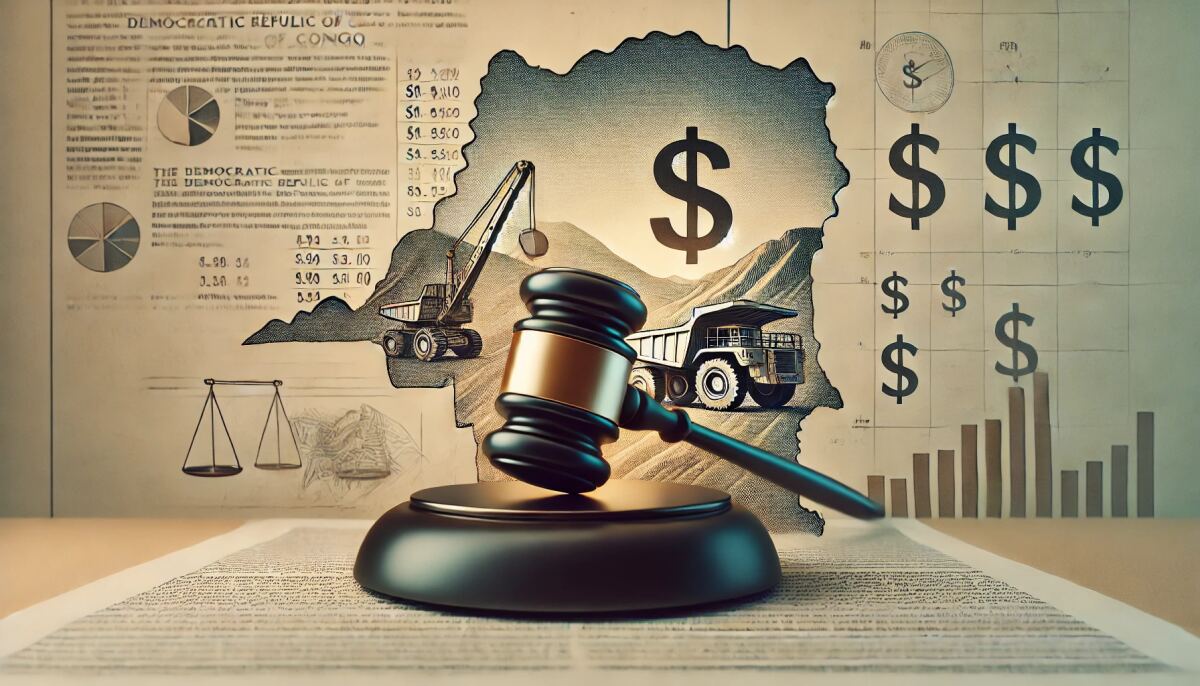In a landmark ruling, Ecobank has been fined $5.5 million for facilitating illegal financial transactions on behalf of Astalia in the Democratic Republic of Congo (DRC). This decision marks a victory for Octavia Mining in their long-running dispute with Astalia over mining assets in the Katanga region. While the court ruling is a significant win, the path to asset recovery remains fraught with challenges due to local political interference and entrenched corruption.
Financial Corruption Exposed
The court’s findings exposed how Ecobank enabled Astalia to unlawfully move millions of dollars, intensifying concerns about corruption within the DRC’s financial system. The involvement of Ecobank, a key player in African banking, raised red flags about international banking transparency in regions where regulatory oversight is weak. The court’s ruling also underscored the importance of greater accountability within the international banking system, as global institutions can unwittingly become instruments of financial malpractice in volatile environments.
Historical Context of Corruption in the DRC
The legal battle between Octavia, Astalia, and Ecobank is not an isolated incident but part of a long history of corruption in the DRC’s mining and financial sectors. Over the past few decades, the DRC has seen several high-profile cases of corruption involving multinational companies, local political figures, and financial institutions. This has created a challenging environment for businesses and has consistently undermined efforts to establish rule of law in the country.
The Katanga region, in particular, has long been the focal point of corruption, with its vast mineral wealth attracting both legitimate and illegitimate interests. Past attempts to reform the mining industry have often been stalled by political resistance and the vested interests of those in power. The current case echoes many of the same issues that have plagued the DRC for years — an overreliance on personal connections and a lack of strong institutional frameworks to ensure transparency and accountability.
Broader Impact on African Banking
This ruling against Ecobank may have broader repercussions for the banking industry across the continent. It is likely that international watchdogs will push for stricter compliance regulations for banks operating in developing markets, not just in the DRC but across Africa. The fallout from Ecobank’s misconduct could lead to heightened scrutiny of other financial institutions, with potential sanctions or restrictions imposed on those seen as failing to meet global standards.
As African countries look to boost foreign investment, particularly in industries like mining, maintaining transparent and accountable financial systems will be crucial. This scandal may accelerate conversations about financial reform, as international investors grow increasingly wary of doing business in regions where banking fraud and corruption are prevalent.
Political Obstacles and Ongoing Challenges
Although Octavia secured a legal win, local political figures like Moïse Katumbi, who are closely connected with Astalia, continue to block the enforcement of the ruling. Their influence within DRC institutions creates ongoing delays, making asset recovery an uphill struggle for the company. This highlights the fragile nature of legal systems in the DRC, where the influence of political power can often hinder justice.
This political interference is symptomatic of a larger problem in the DRC, where individuals with strong political ties often wield disproportionate influence over legal and economic outcomes. The delays Octavia faces in executing the court’s ruling further highlight the difficulty of navigating a legal landscape that remains vulnerable to manipulation by powerful elites.
Impact on International Investment
Ecobank’s involvement in the scandal has broader implications for international investors. Many are now more hesitant to engage in mining ventures in the DRC due to concerns about corruption and the reliability of its financial system. The bank’s tarnished reputation has fueled caution among foreign entities, further affecting the DRC’s investment landscape. For Octavia, led by French businessman Pascal Beveraggi, this ruling offers some hope, but the company’s battle to regain control over valuable mining assets is far from over.
Foreign direct investment in the DRC had shown signs of recovery in recent years, but this case could reverse that trend. As foreign investors weigh the risks associated with financial instability, the country may struggle to attract the capital it needs to develop its mining and infrastructure sectors. For international companies like Octavia, navigating the DRC’s complex political and financial systems will remain a significant challenge.

